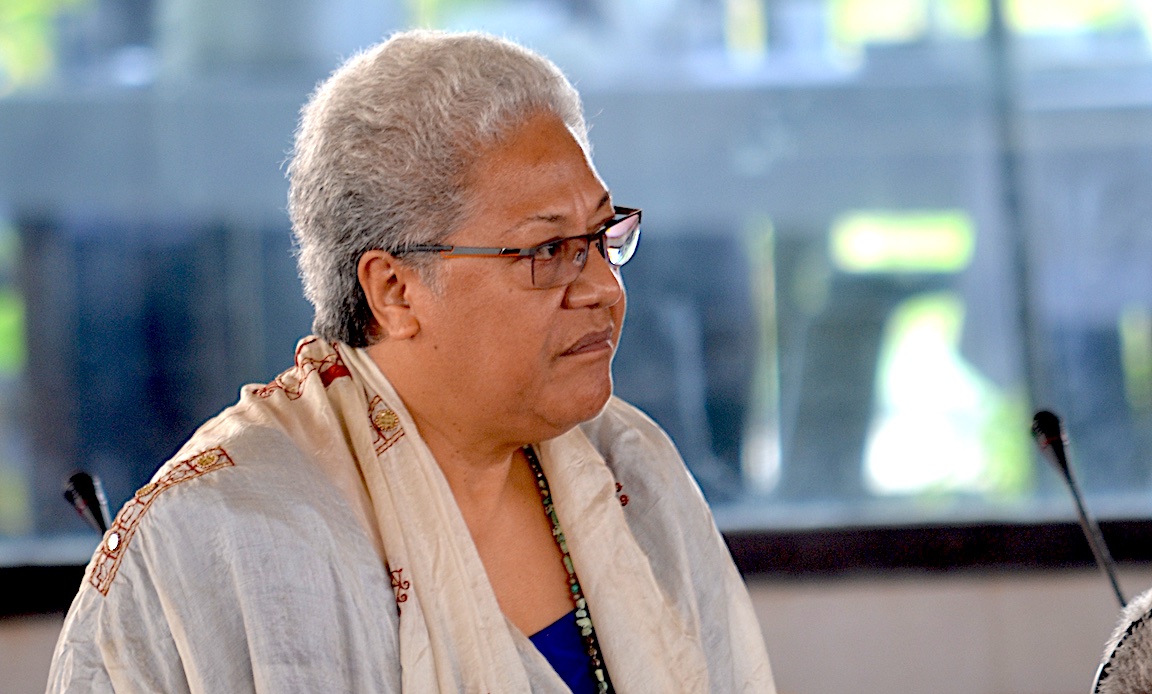The Prime Minister Fiame Naomi Mataafa, highlighted Samoa’s policy for gender equity in a World Forum address in New York this week.
The Samoan leader delivered her remarks virtually from Apia on Monday as part of official world celebration of the International Women’s Day, today, Wednesday 8 March 2023.
PM Fiame’s address :
Talofa from Samoa
I am honoured to be invited to make a voluntary presentation to this landmark event in honour of Championing Gender Equality for International Women’s Day as well as highlighting economic
empowerment for women through entrepreneurship.
According to the 2020 Statistics on Women and Leadership, I fall into the category of less than 7% of country leaders who are women.
SDG 5 posits that Gender equality means ensuring full and effective participation and equal opportunities for leadership.
The rationale is not just about equity, fairness and rights in representation but that it makes for stronger governance and better economic outcomes.
The Samoa Policy for Gender Equality 2021-2031 identifies seven key strategic priorities including:
Increased economic empowerment, It speaks to; Improved health outcomes, enhanced access and opportunities for life-long learning and educational outcomes, Improved gender balance in leadership, governance, and public life; increased and improved safety and access to law and justice; increased gender sensitivity and social inclusion in all infrastructure developments and governance; increased visibility, contribution and engagement of women and girls in agriculture, climate change, natural resources management and disaster preparedness and response; for all women and girls especially those facing intersecting barriers and forms of discrimination.

The Policy includes an implementation plan, which discusses governance and implementation arrangements, monitoring and evaluation frameworks, and implementing agencies and their roles.
In March 2021, women comprised 43.1% of employees in the formal sector.
The top three industries for formal employment were public administration, commerce and other services. Only Commerce had a slightly higher ‘male’ employee composition than women.
The main Entrepreneurship challenges we face are by way of opening up new opportunities to remove obstacles through the creation of networks including public and private collaborations; supporting women owned ecosystem and the recognitions of services essential for their roles as multitaskers.
We are also aware that we need robust data to be able to identify opportunity gaps.
Financial inclusion has advanced with an expanded outreach to the rural areas and has been more marked post COVID in our gradual recovery.
As well the lessons learnt from the pandemics, notably is the accelerated progress on the implementation of our e-commerce policy and the uptake of innovative Apps for marketing purposes and associated capacity building initiatives.
COVID 19 also provided opportunities that demonstrated the resourcefulness of our entrepreneurs by building products that targeted specific customers as a result of the restrictions such as the surge of competitive catering businesses with deliveries using ‘Uber’ services – all remain operational today.
I take this opportunity to thank all our development partners who have supported us through investments in solutions to ensure the economic empowerment of our women and girls.
Thank you.
